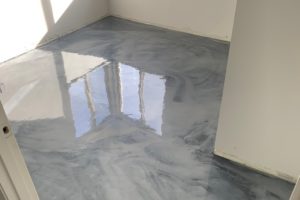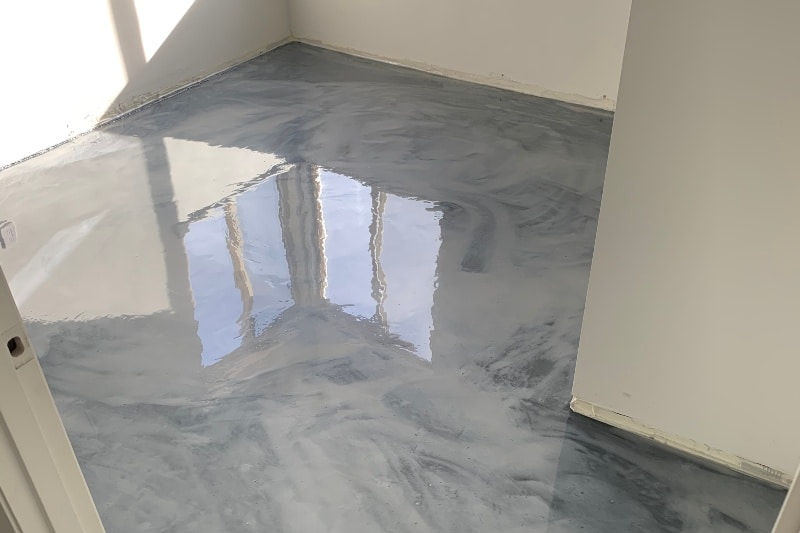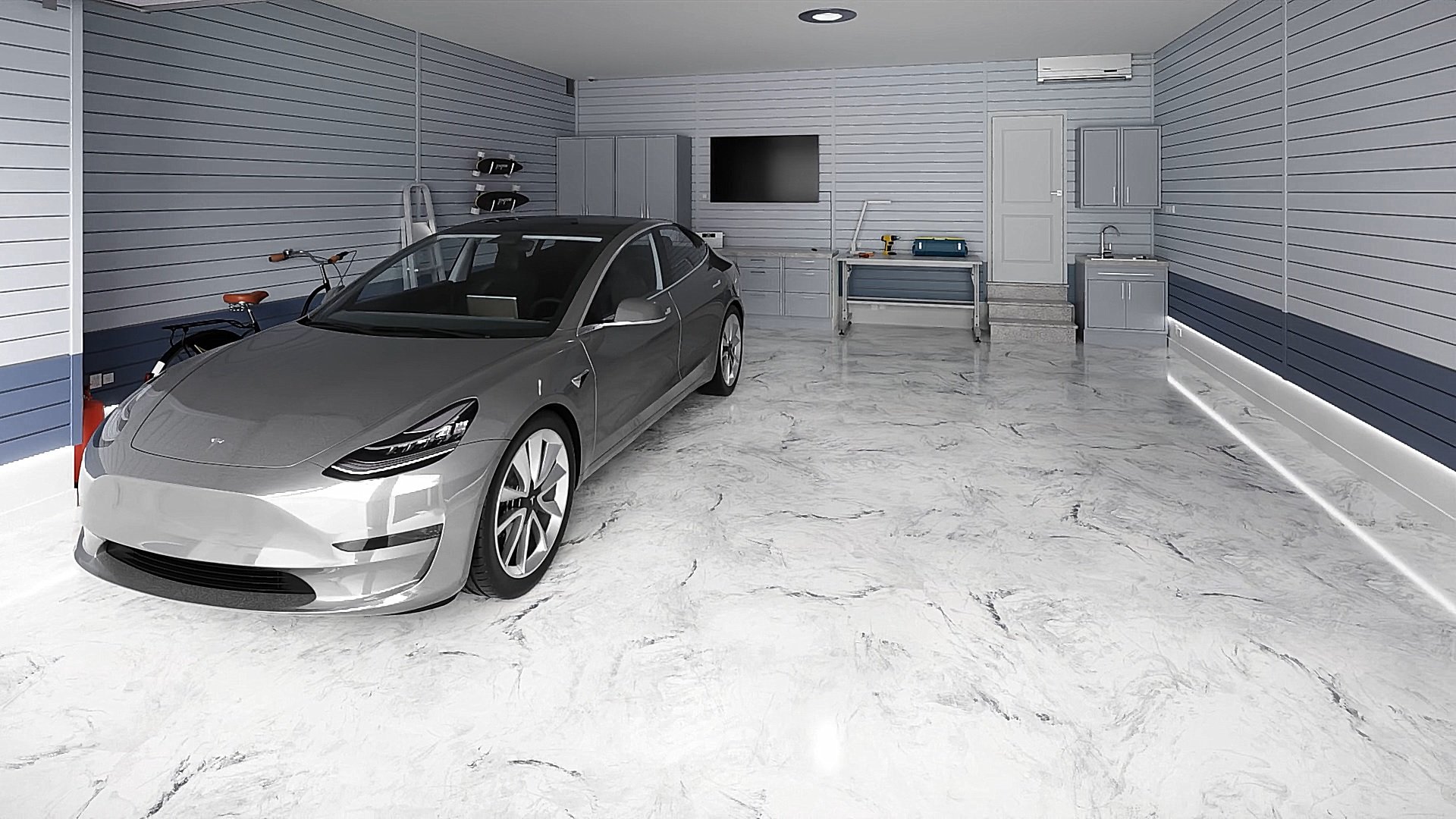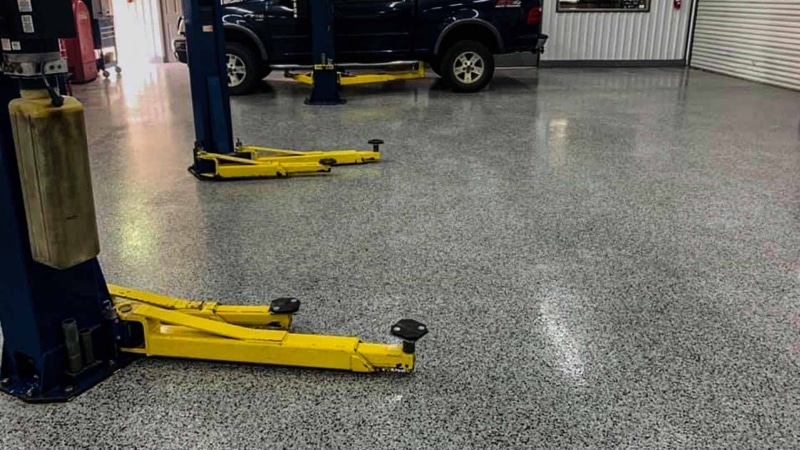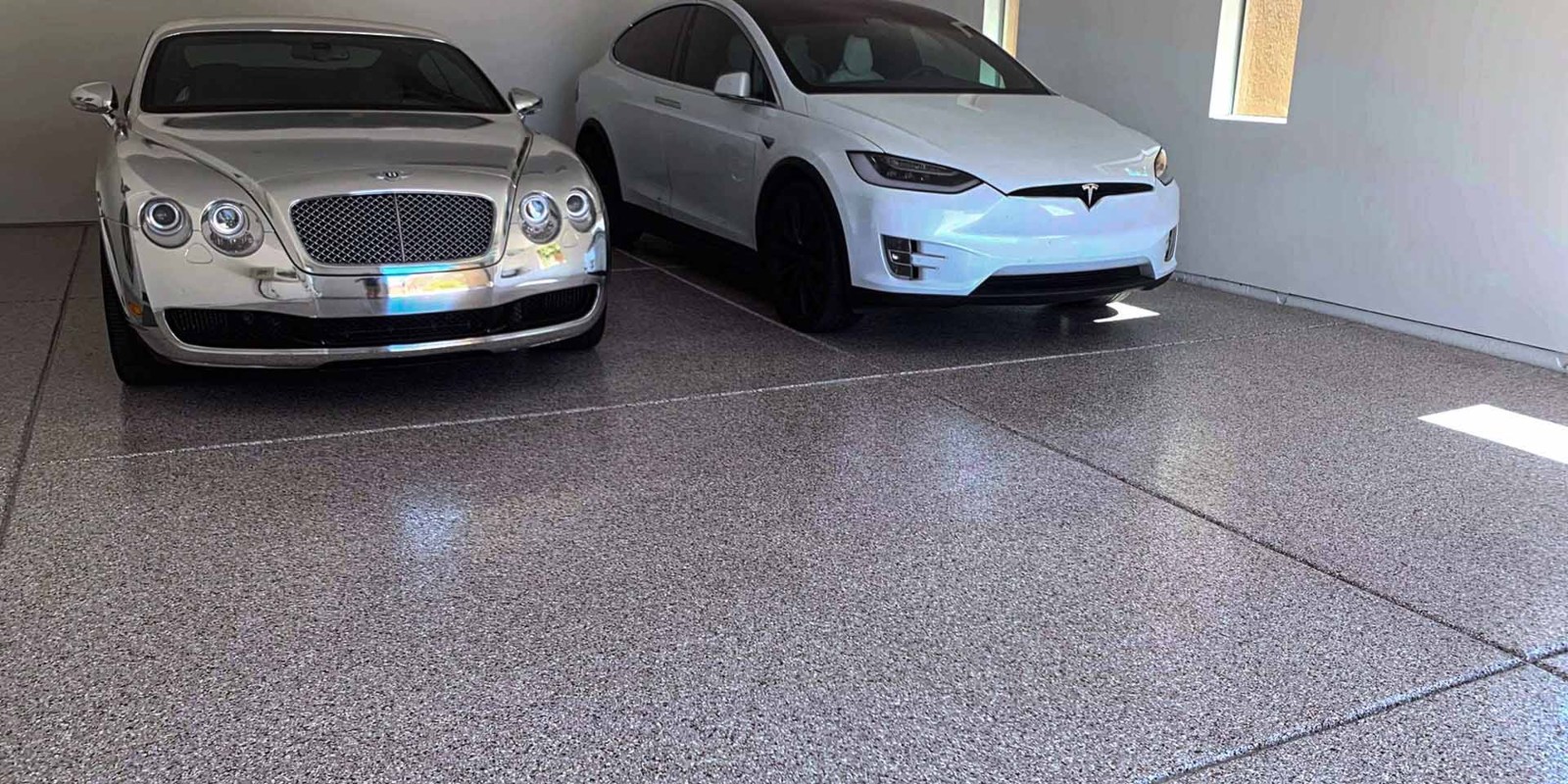Garage Makeovers: What to Expect for Garage Floor Coating Cost
Are you considering a garage makeover but don’t know what to expect in terms of costs? Garage floor coating cost is one of the most important parts of the job, and it’s worth taking the time to research prices before diving into any major remodeling projects. Here, we will take an in-depth look at the factors that can influence floor coating costs and how you can get the best bang for your buck with a successful garage makeover.
What is Floor Coating and Why is it Important for a Garage Makeover Project
Floor coating refers to the application of a protective or decorative layer of material over the garage floor. It serves a dual purpose. Aesthetically, it can transform a dull, gray concrete garage floor into a clean, polished, and inviting workspace. From a practical perspective, it protects the concrete from oil stains, chemical spills, and other detritus common in garage environments. This protective layer is also resistant to moisture, reducing the risk of mold and mildew growth. Moreover, it simplifies the cleaning process as it prevents dust and debris from penetrating the concrete. Therefore, when considering a garage makeover, a floor coating is an essential step that not only enhances the look of your garage but also extends its lifespan and functionality.
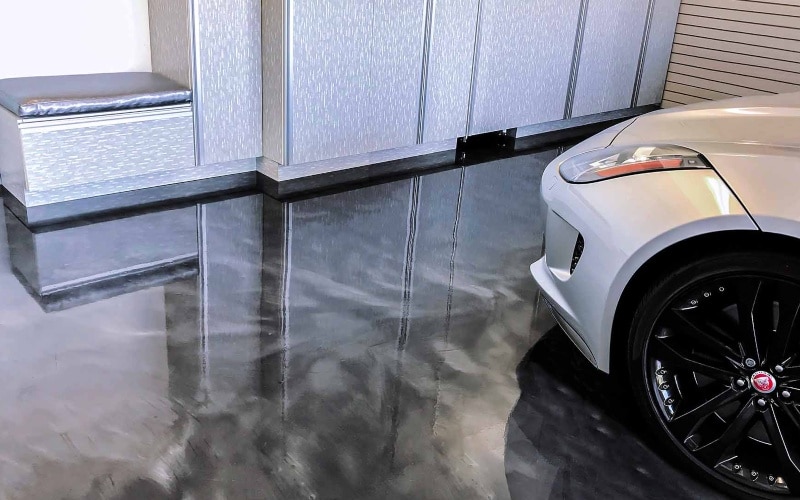
Factors that Influence Floor Coating Costs
The cost of floor coating can vary significantly, depending on a number of key factors:
- Material: The type of material you choose for your floor coating can have a considerable impact on the final cost. Epoxy and polyurea are two commonly used materials, with epoxy being the more affordable but less durable option.
- Garage Size: The larger the garage, the more material will be needed for its floor coating, thereby increasing the cost.
- Condition of the Garage Floor: If your garage floor is damaged or uneven, additional work may be required before the coating can be applied, which will add to the overall cost.
- Labor Costs: Depending on whether you choose to do the work yourself or hire professionals, labor costs can also significantly influence the final cost.
- Geographical Location: Prices for materials and labor can vary depending on the region. In areas where the cost of living is high, you can expect higher prices for garage floor coating.
Given these factors, it is important to get a quote from several different suppliers or contractors before making a decision. This will allow you to compare prices and ensure you’re getting the best value for your money. Remember, while cost is an important consideration, the quality and durability of the work should not be compromised.
How to Get the Most Out of Your Floor Coating Budget
Maximizing your floor coating budget requires planning, research, and wise decisions. Begin by accurately determining the size of your garage to estimate the amount of materials needed. You can reduce labor costs by doing some or all of the work yourself if you have the skills and time. However, hiring professionals may ensure a more efficient and quality job, especially for larger or more complex jobs.
When choosing materials, consider the long-term benefits. While epoxy is cheaper, polyurea is more durable and may save you money in the long run by reducing the need for touch-ups and repairs. Don’t forget to factor in the condition of your garage floor. Repairing any damage before applying the coating can prevent future issues and additional costs.
Finally, shop around to get the best deal. Epoxy flooring costs can vary significantly between suppliers and contractors, so getting several quotes can help you find the most cost-effective solution. However, remember that the cheapest option is not always the best. Look for a balance between cost and quality to ensure the longevity and aesthetic appeal of your garage makeover.
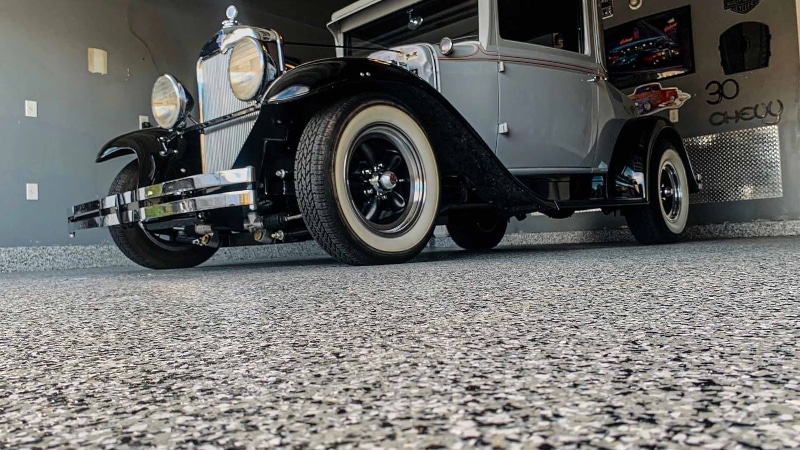
Pros and Cons of DIY vs Professional Installation
DIY Installation
Pros:
- Cost Savings: Doing the job yourself can potentially save you a significant amount of money, particularly on labor costs.
- Flexibility: You can work on the project at your own pace and timing, which may be beneficial if you have a busy schedule.
- Personal Satisfaction: There’s a sense of achievement and satisfaction in doing a job on your own
Cons:
- Quality: Without professional training and experience, the quality of work may not match that of a professional installation.
- Time-Consuming: DIY projects can take longer to complete, especially for beginners or if the project is complex.
- Risk of Mistakes: There’s a higher risk of mistakes, which could potentially increase costs in the long run.
Professional Installation
Pros:
- Quality of Work: Professionals have the skills, experience, and tools to deliver a high-quality job.
- Efficiency: With their expertise, professionals can typically complete the job more quickly than an amateur.
- Warranty: Many professional epoxy services offer a warranty on their work, providing you with peace of mind.
Cons:
- Cost: Professional services come at a cost, and it may be significantly higher than doing it yourself.
- Scheduling: You’ll need to coordinate with the professionals’ schedule which might not always align with yours.
- Less Control: You’ll have less control over the project as the work is being done by someone else.
Tips for Success When Hiring a Contractor for Your Project
When hiring a contractor for your project, here are several tips to ensure successful outcomes:
- Research Contractors: Thoroughly research potential contractors. Lookup reviews online, ask for references, and check their portfolio to assess the quality of their work.
- Get Multiple Quotes: Request quotes from multiple contractors to compare costs, services, and timelines. This can help you find the best value for your money.
- Verify Licenses and Insurance: Check the contractor’s credentials. They should have all necessary licenses to perform the work legally. Additionally, ensure they have insurance to cover any damage or accidents during the project.
- Communicate Clearly: Be clear and specific about your project expectations. This includes timeline, budget, and desired outcome. Good communication from the outset can help prevent misunderstandings later.
- Get Everything in Writing: From the quote to the final contract, get everything in writing. This should include the scope of work, materials to be used, start and end dates, payment schedule, and any guarantees or warranties. This can protect you in case of disputes or issues down the line.
- Stay Involved: Stay involved in the project. Regularly check the progress and address any issues immediately. This helps ensure that the project stays on track and meets your expectations.

Common Mistakes to Avoid During Your Floor Coating Project
Whether you’re undertaking a DIY project or hiring professionals, there are some common pitfalls to avoid during your floor coating project:
- Inadequate Floor Preparation: One of the biggest mistakes is not properly preparing the garage floor before applying the coating. This includes cleaning, repairing cracks, and ensuring the floor is level. Failure to do so can result in poor adhesion and a lower quality finish.
- Ignoring Weather Conditions: Temperature and humidity can affect the curing process of the floor coating. Avoid applying the coating in extreme weather conditions. If it’s too cold, the coating may not adhere properly; if it’s too humid, it could cause blushing or cloudiness.
- Choosing the Wrong Materials: Not all floor coatings are the same. It’s crucial to choose the right type for your specific needs. For instance, epoxy might be a good choice for a domestic garage, while a commercial garage might require a more durable polyurea coating.
- Incorrect Mixing: Incorrectly mixing the components of the coating can lead to problems. Follow the manufacturer’s instructions carefully to ensure the right ratios are achieved.
- Applying Coating Too Thin or Too Thick: Applying the coating too thinly can result in an uneven finish and less durability. Conversely, applying it too thickly can lead to bubbles or an uneven cure.
- Not Allowing Enough Dry Time: Be patient and allow each layer of coating to dry fully before applying the next. Rushing the process can result in a floor that doesn’t last as long as it should.
By avoiding these common mistakes, you can ensure the success of your floor coating project and enjoy a garage floor that is not only appealing but also durable and long-lasting.
In conclusion, whether you choose to DIY or hire professionals for your garage floor coating project, it’s essential to do thorough research and planning. Consider the pros and cons of each option and weigh them against your specific needs and budget. When hiring a contractor, follow these tips to ensure successful outcomes. Additionally, be aware of common mistakes that can affect the quality and longevity of your floor coating. With the right approach, you can achieve a beautiful and functional garage floor that meets your needs and lasts for years to come.
Wise Coatings of Austin
https://goo.gl/maps/uisYsX9zx3Z6AWL29
+1 512 599 9473
https://wisecoatings.com/austin


